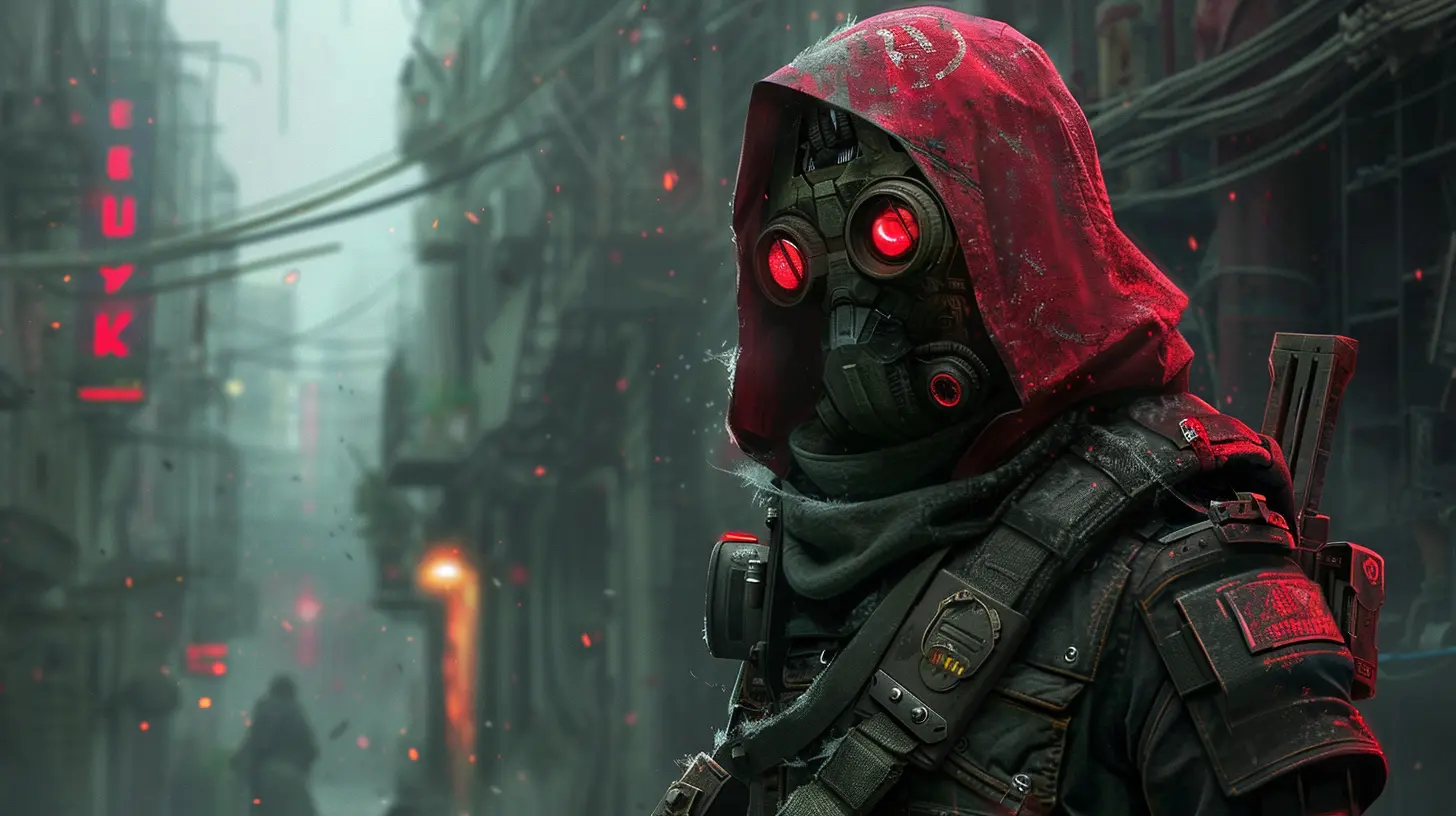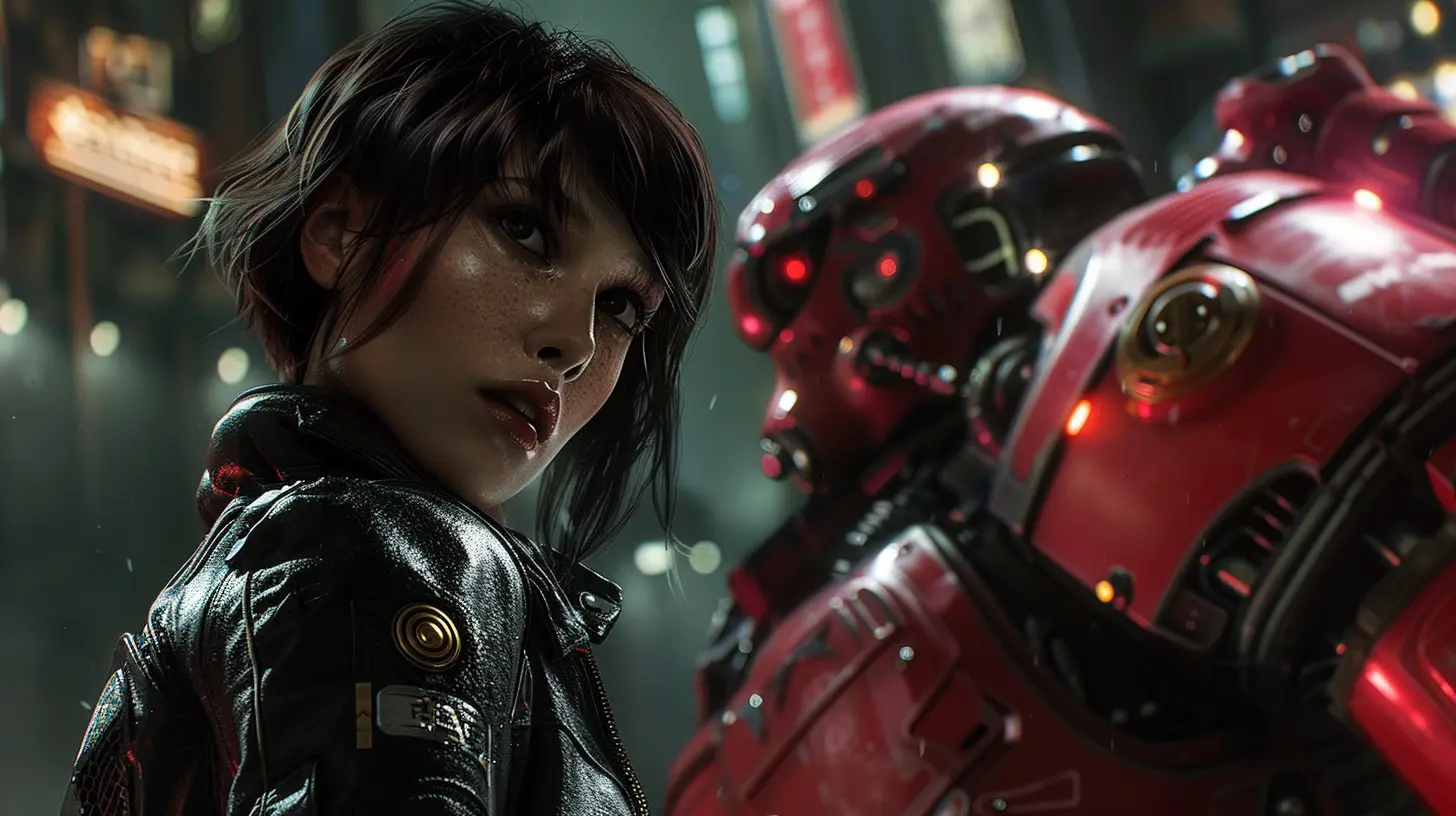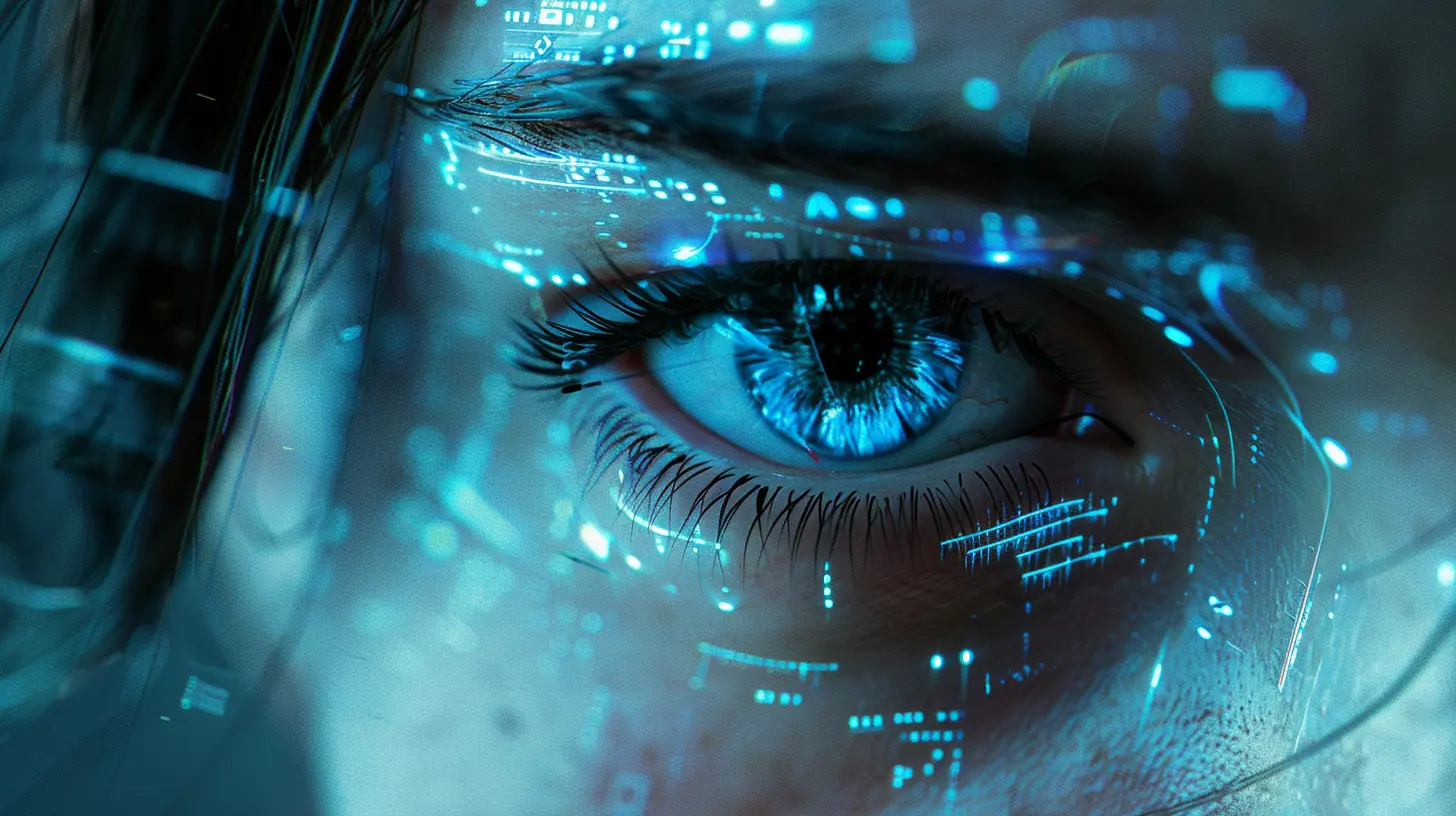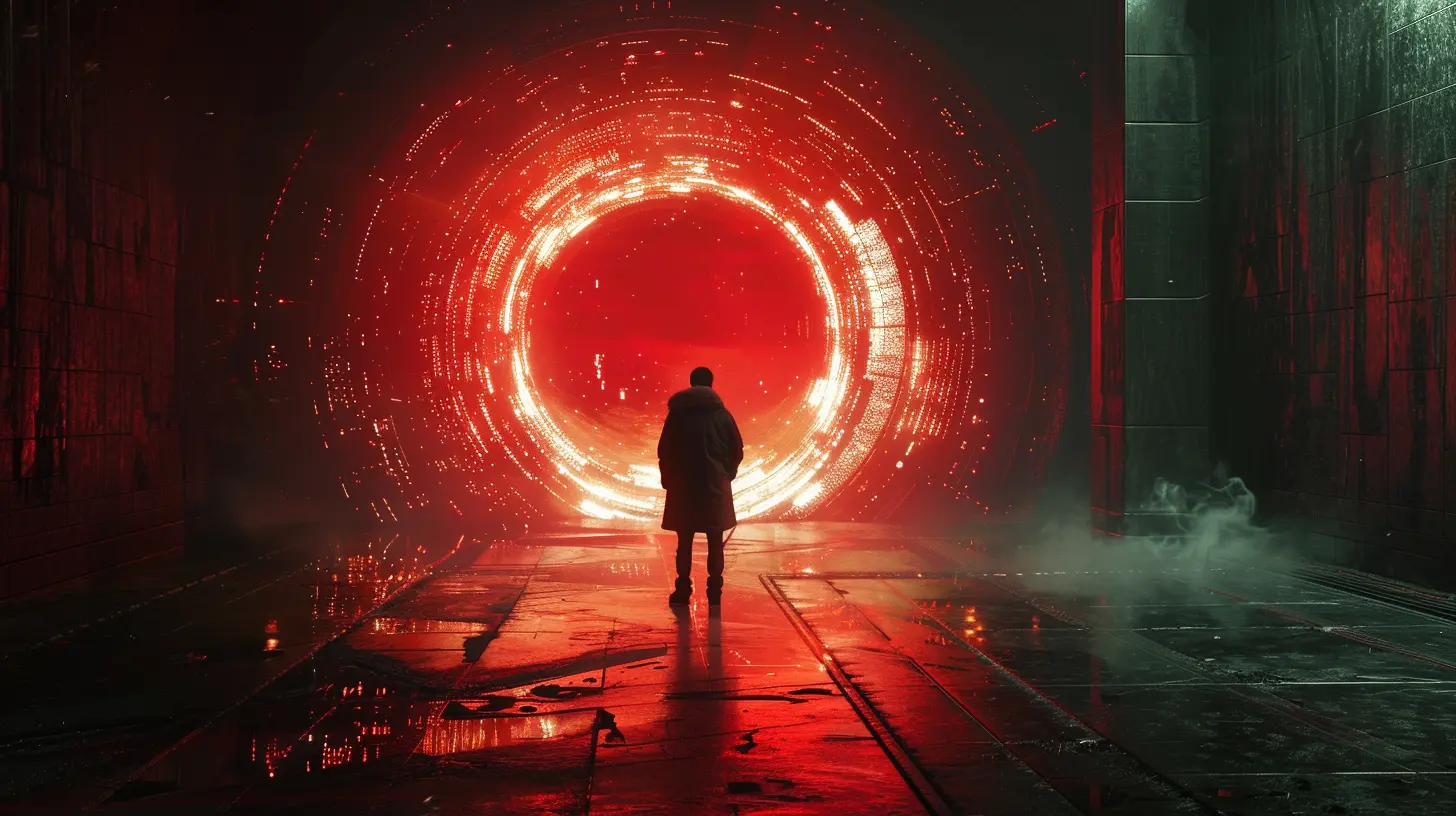Understanding the Intrigue of Deus Ex’s Cyberpunk Dystopia
6 July 2025
If you’ve ever booted up a Deus Ex game and immediately felt like you were diving headfirst into a gritty, neon-lit rabbit hole of futuristic chaos—you’re not alone. The Deus Ex series isn’t just an action RPG; it’s a cerebral rollercoaster through one of gaming’s most compelling dystopian visions.
There’s something about its blend of shadowy conspiracies, cybernetic upgrades, and morally gray choices that pulls you in, keeps you questioning reality, and makes you wonder whether the future it paints might not be all that far-fetched.
So, why does Deus Ex’s cyberpunk world hook us so deeply? Let’s unravel that mystery together.
The Cyberpunk Canvas: It's Not Just Neon and Rain
When most people think cyberpunk, they imagine sprawling cities bathed in neon, drizzling rain, and people with glowing eyes and wires sticking out of their heads. While that aesthetic is definitely part of the appeal, Deus Ex takes the genre and cranks up the depth.It’s not just about the look—it’s about the atmosphere, the philosophy, the questions. This is a world where technology and humanity are entangled in a messy love-hate relationship. Power is hoarded by the elite, privacy is a myth, and everyone’s got a hidden agenda.
Doesn’t sound so different from our world, huh?
Deus Ex doesn’t just drop you into a cool setting—it makes you live it, breathe it, question it.
Meet the World: Welcome to a Broken Future
The world of Deus Ex is set in a not-so-distant future where cybernetic enhancements (called augmentations) are the norm—if you can afford them. Think robotic limbs, enhanced vision, superhuman reflexes—basically, you can become a walking tech god.But here’s the catch: these augments come at a price. Not just financial, but physical and moral. People need expensive drugs to keep their bodies from rejecting their mechanical parts. This creates a literal divide between the enhanced (the rich), and the natural (often the poor).
Sound familiar? It echoes today’s growing issues with wealth inequality, access to healthcare, and the ethics of human enhancement.
It’s this grounded realism that makes Deus Ex’s dystopia feel so eerily believable.
The Player’s Role: You’re Not Just a Hero, You’re a Catalyst
In Deus Ex, you typically step into the boots of someone like JC Denton or Adam Jensen—enhanced agents walking a razor’s edge between obedience and rebellion.But you’re not a mindless gun-toting grunt. You’re a decision-maker.
Every choice you make—who you trust, who you betray, what paths you take—it all changes how the story unfolds. It’s one of those rare games where actions truly have weight. Your morality is constantly tested, and the game never holds your hand when it comes to “right” or “wrong”.
That alone adds a level of emotional and philosophical investment you don’t find in most games. It’s not just about saving the day; it’s about deciding what kind of world you want to save.
The Intrigue of Conspiracy: Truth is Always Twisted
If you love unraveling a juicy conspiracy theory, Deus Ex is like stepping into a goldmine. The plot is laced with underground organizations, shadow governments, corporate manipulation, and humanity on the brink of engineered evolution.You’ll encounter groups like the Illuminati, biotech corporations with too much power, and resistance movements trying to claw their way through the chaos. It’s never clear who the real villains are—or if there even are any.
What makes this all so compelling is that it mirrors real-world fears. We’ve all heard whispers about surveillance states, tech giants wielding too much influence, and governments with hidden agendas. Deus Ex doesn’t shy away from these themes—it stares them down with blazing eyes.
The game makes you feel like a cog in a massive, mysterious machine… yet you’re also the wrench that can grind it to a halt—or keep it running.
Augmentation: The Double-Edged Sword of Progress
Let’s talk about the heart of Deus Ex’s gameplay and story—augmentations. On the surface, they’re awesome. Want to punch through walls? See through them? Hack a turret from across the room? You can do all that and more.But as with all power, there’s a catch.
Augmentations in Deus Ex raise uncomfortable questions. What makes us human? If we can replace our bodies with machines, what happens to our souls? Who gets access to these god-like powers—and at what cost?
The beauty of Deus Ex is that it doesn’t give you easy answers. It lets you wrestle with the philosophical and ethical weight of your enhancements. You're free to marvel at your new abilities but also forced to acknowledge the darker sides of transhumanism.
Gameplay That Mirrors Philosophy
The way you play Deus Ex actually reinforces the game’s themes. You’re constantly given the choice: do you go in guns blazing, or sneak through vents, avoiding detection? Do you kill your enemies or find non-lethal solutions?These choices aren’t just about how you like to play—they reflect your personal philosophy. Are you a brute-force kind of person or a tactician? Do the ends justify the means? Should you use your power to dominate or liberate?
No matter how you approach the game, you’re shaping not just the outcome but the tone of your story. That’s powerful stuff.
Characters Who Feel Real, Flaws and All
In Deus Ex, characters aren’t just background noise; they’re complex, believable people. From your close allies to the enemies you face, everyone has a story, a motivation, a secret.And let’s be honest—Adam Jensen? Total badass. His deep voice, trench coat, and “I didn’t ask for this” attitude made him an instant icon. But even beyond Adam, the supporting cast is full of depth. Friends can become enemies. Villains might have valid points. It’s a world painted in shades of gray.
This moral complexity makes conversations just as gripping as shootouts. You find yourself leaning in, hanging on every word, trying to decipher who’s telling the truth and who’s playing you like a fiddle.
A World You Want to Get Lost In
Let’s not forget one of the most magnetic parts of the Deus Ex series—the world design. Whether you’re navigating the bustling streets of Hengsha, the dark corners of Detroit, or the decaying ruins of Prague, every environment oozes atmosphere.It’s the kind of game where you stop mid-mission just to read an in-game email or eavesdrop on a conversation. Not because you have to, but because the world feels alive. Every corner tells a story.
And man, the hacking mini-games? Addictive. Satisfying. Nerdy in the best way. Who knew cyber security could be this fun?
The Music That Whispers in the Shadows
We can’t talk about Deus Ex without mentioning the hauntingly beautiful score. The music is subtle yet emotionally charged. It mixes synthetic tones with orchestral touches to create this perfect blend of suspense, melancholy, and tension.It’s the kind of soundtrack that gets under your skin. It elevates every scene, from quiet conversations to high-stakes missions. It feels like the soul of the game—whispering secrets and stirring emotions you didn’t know you had.
Why Deus Ex’s Message Matters Today
Here’s the kicker—Deus Ex isn’t just a game. It’s a mirror held up to society. The issues it tackles—corporate greed, surveillance, inequality, transhumanism—they’re not science fiction anymore. They’re our reality. Or at least, they’re knocking on the door.That’s why Deus Ex resonates so deeply with people. It speaks to our anxieties about the world we’re building and asks the tough questions: Are we giving up too much for convenience? Who controls our data? What does freedom really mean?
Playing Deus Ex feels like a form of digital rebellion. It doesn’t preach. It provokes. And it stays with you long after the credits roll.
Final Thoughts: Why the Dystopia Draws Us In
The intrigue of Deus Ex’s cyberpunk dystopia isn’t about flashy tech or futuristic cities—it’s about humanity. It's about what we become when power is unchecked, when machines merge with flesh, and when truth becomes a matter of perspective.It challenges us to think critically, question authority, and define what kind of future we want to be part of.
That’s pretty inspirational, don’t you think?
In a world filled with superficial shooter games and soulless grind-fests, Deus Ex stands tall as a meaningful, thought-provoking experience. It's not just a game. It’s a wake-up call wrapped in cyberpunk clothing.
So, whether you’re a long-time fan or a curious newcomer, take the plunge. There’s never been a better time to plug in and see just how deep the rabbit hole goes.
all images in this post were generated using AI tools
Category:
Lore And StorylinesAuthor:

Kaitlyn Pace
Discussion
rate this article
2 comments
Savannah Rivera
Deus Ex masterfully explores the tension between technology and humanity, presenting a cyberpunk dystopia that challenges players to confront ethical dilemmas. Its rich narrative and complex characters invite deep reflection on the consequences of unchecked advancement, making it a timeless cautionary tale.
January 19, 2026 at 3:53 PM
Paxton Smith
Embrace the journey; explore the future's possibilities!
July 26, 2025 at 4:14 PM

Kaitlyn Pace
Thank you! Embracing the journey is key to navigating the complexities of Deus Ex's world and its rich exploration of future possibilities.


